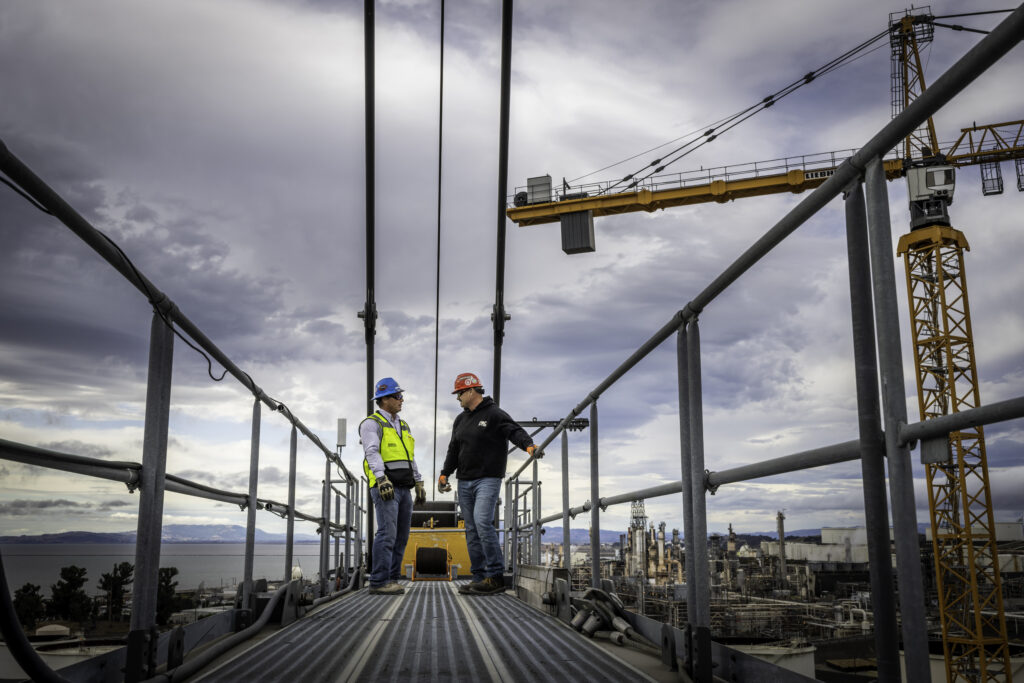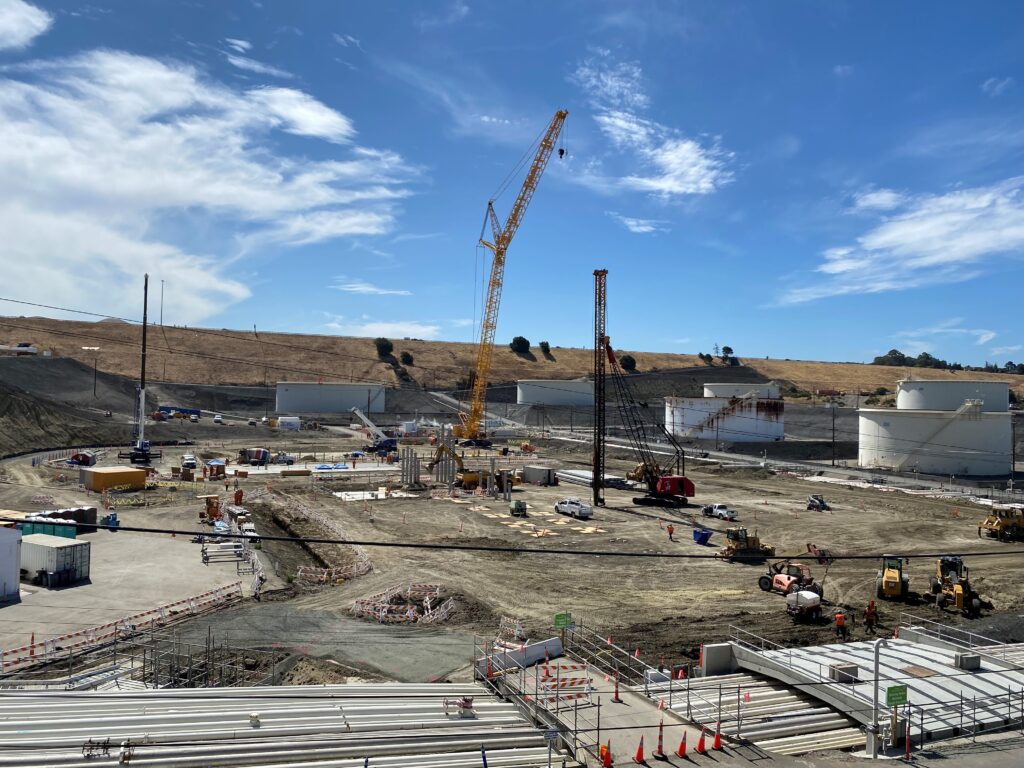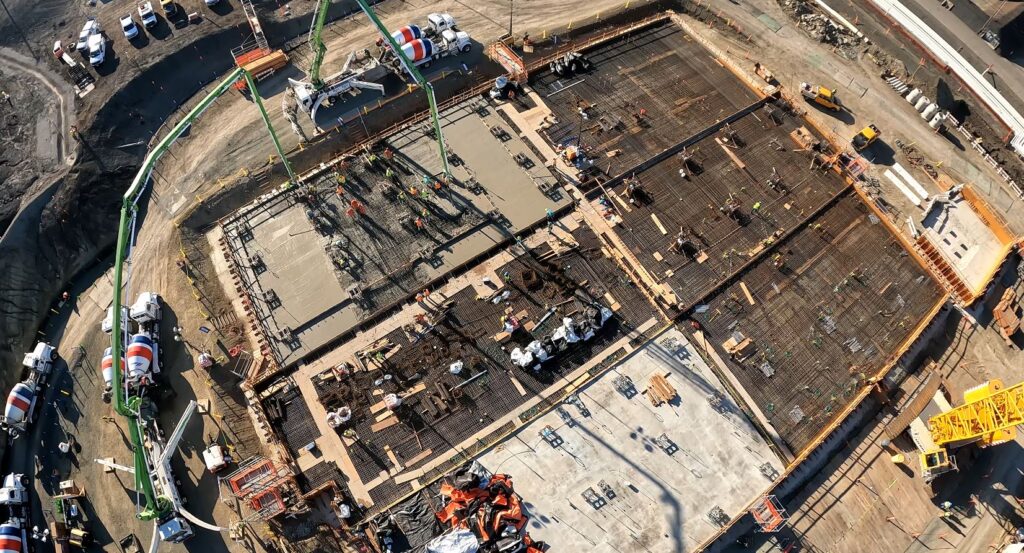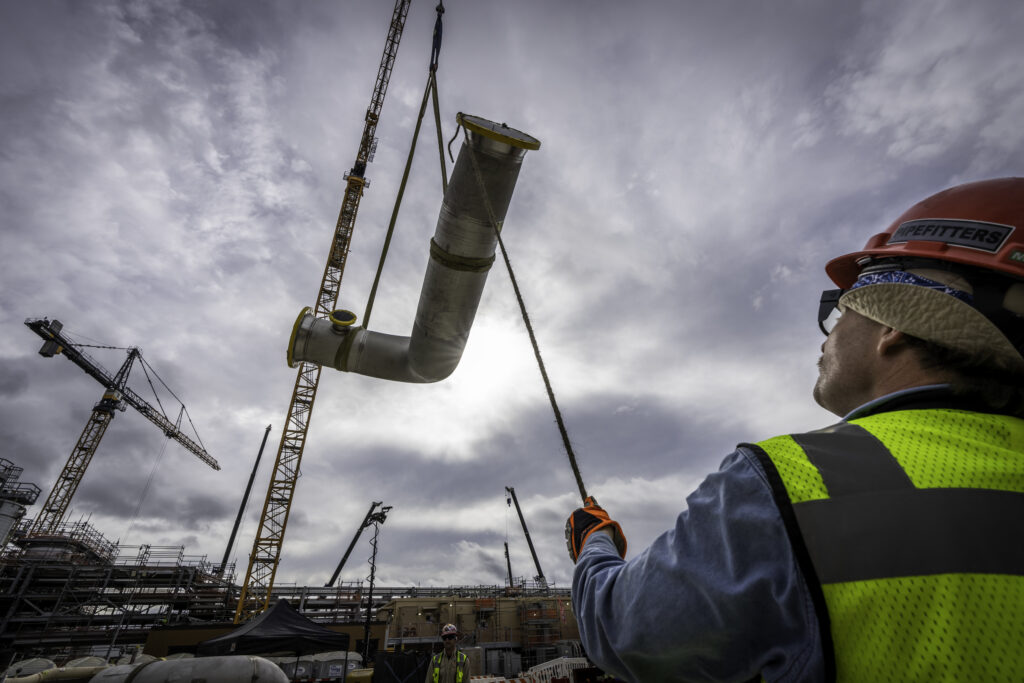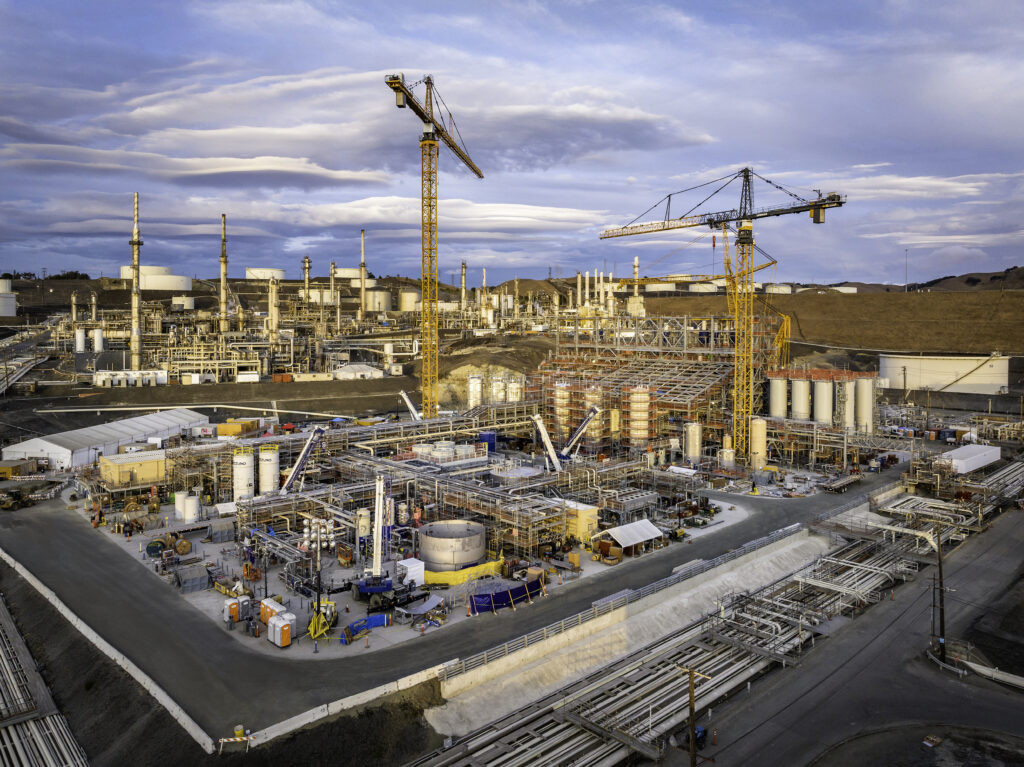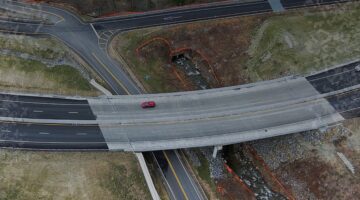In the heart of California’s refining landscape, Phillips 66 is making waves with its ambitious Rodeo Renewed project. This venture is not just about refurbishing an old refinery; it’s a bold step towards a greener, more sustainable future for the refining industry. Cherne Contracting, a Kiewit subsidiary experienced in the refining industry, is tasked with building an entirely new renewable diesel pre-treatment facility — the largest in the Western Hemisphere — with limited and constantly diminishing space.
A Paradigm Shift in Refining
The San Francisco Refinery, owned and operated by Phillips 66, has long been a fixture in the region. It sits in Rodeo, California, a small designation within Contra Costa County next to competing facilities. The Rodeo Renewed project, however, is more than a routine upgrade — it’s a comprehensive conversion aimed at aligning with modern environmental standards and embracing the future of energy.
According to Phillips 66, the Rodeo Renewed project is set to enhance the refinery’s capabilities, incorporating cutting-edge technologies to produce cleaner fuels. The company is simultaneously converting existing diesel infrastructure and building new facilities at Rodeo Renewed. The goal is clear: reducing the carbon footprint and contributing to a more sustainable energy landscape.
Lessons Learned
Undoubtedly, the Rodeo Renewed project faces its share of challenges. Complexities in integrating new technologies, regulatory hurdles, and the sheer scale of the conversion are just a few considerations.
Esai Dominguez, Cherne’s project manager for Rodeo Renewed, described the greatest limitation for the team: “Each day our footprint is getting smaller and smaller.” Construction at the refinery is a balancing act between available space and work needing to be performed. For example, after the foundations were in place for the site, each steel column added to the construction reduced the space that craft workers could operate within. The first steel column was placed in October 2022, with more ironworkers coming on to the project site each day to work on the structures.
“The structures for the new facility are unique in that they are larger, heavier and more complex to build than previous work we’ve done in the refining industry,” said Dominguez. Cherne is experienced with this type of work, but building the largest renewable diesel pre-treatment unit in the Western Hemisphere had unforeseen challenges.
In January 2023, Cherne began placing equipment for use in the pre-treatment unit and placed over 600 pieces throughout the year. These included between 30 and 40 pieces that significantly reduced the building footprint available to the team. The new biodiesel equipment is 40 to 46 times the typical scale of the same pieces in a traditional diesel configuration. After the equipment was installed, there were still multiple construction phases left, including pipefitting, electrical and insulation.
“On an average day we have 350 pipefitters at peak in here all competing for space and trying to complete their work, and as soon as they finish, our electricians come in to take their place,” said Dominguez.
According to Dominguez, the key to navigating the increasingly congested refinery was preparation and collaboration. Experts from 14 Kiewit districts collaborated with Cherne on the project, and the large variety of craft workers made the construction go more smoothly. About 650 craft from all trades, including carpenters, pipefitters, electricians, boilermakers, operators, laborers, masons, millwrights and ironworkers, all contributed to the facility.
The Essence of Renewable Diesel
One of the key features of the Rodeo Renewed project is the adoption of advanced technologies. Rodeo Renewed is an investment into the conversion of feedstocks into biofuels, marking a significant departure from traditional refining methods.
Unlike traditional diesel, which is derived predominantly from fossil fuels, renewable diesel is sourced from organic materials such as vegetable oils, animal fats or recycled cooking oil. This shift toward bio-based feedstocks marks a fundamental departure from conventional refining practices, emphasizing a circular economy approach.
Renewable biodiesel is often lauded for its lower carbon footprint, since its production involves harnessing the natural processes of photosynthesis, where plants absorb carbon dioxide from the atmosphere. As a result, the net carbon emissions from burning renewable diesel are significantly reduced when compared to traditional diesel, which relies on extracting and refining fossil fuels.
One noteworthy aspect of renewable biodiesel is its compatibility with existing diesel infrastructure. Renewable diesel can be used in diesel engines without any modifications, offering a seamless transition to a more sustainable fuel source. Additionally, the performance characteristics of renewable diesel, such as its lubricity and combustion properties, could influence the overall efficiency of engines.
Paving the Way for Sustainable Refining
The Rodeo Renewed project is forging a path toward sustainable and environmentally conscious refining. The marriage of technology, collaboration and environmental responsibility positions this initiative as a marker of change in an industry often associated with environmental challenges.
Phillips 66 and Cherne are not just renovating a refinery — they are helping redefine the future of refining. Once the facility is complete in early 2024, after a brief shutdown, the San Francisco Refinery will switch to 100% renewable diesel. The success of this venture could very well set the tone for a new era where sustainability and innovation meet in the refining industry.
Community engagement and environmental stewardship are integral aspects of the Rodeo Renewed project. In conjunction with Contra Costa County, Phillips 66 and Cherne are actively collaborating with state regulators and residents to ensure transparency.
As the Rodeo Renewed project continues to unfold, it beckons the industry to reimagine the possibilities of refining, where renewable diesel isn’t just an alternative but a catalyst for a greener, more sustainable tomorrow.
